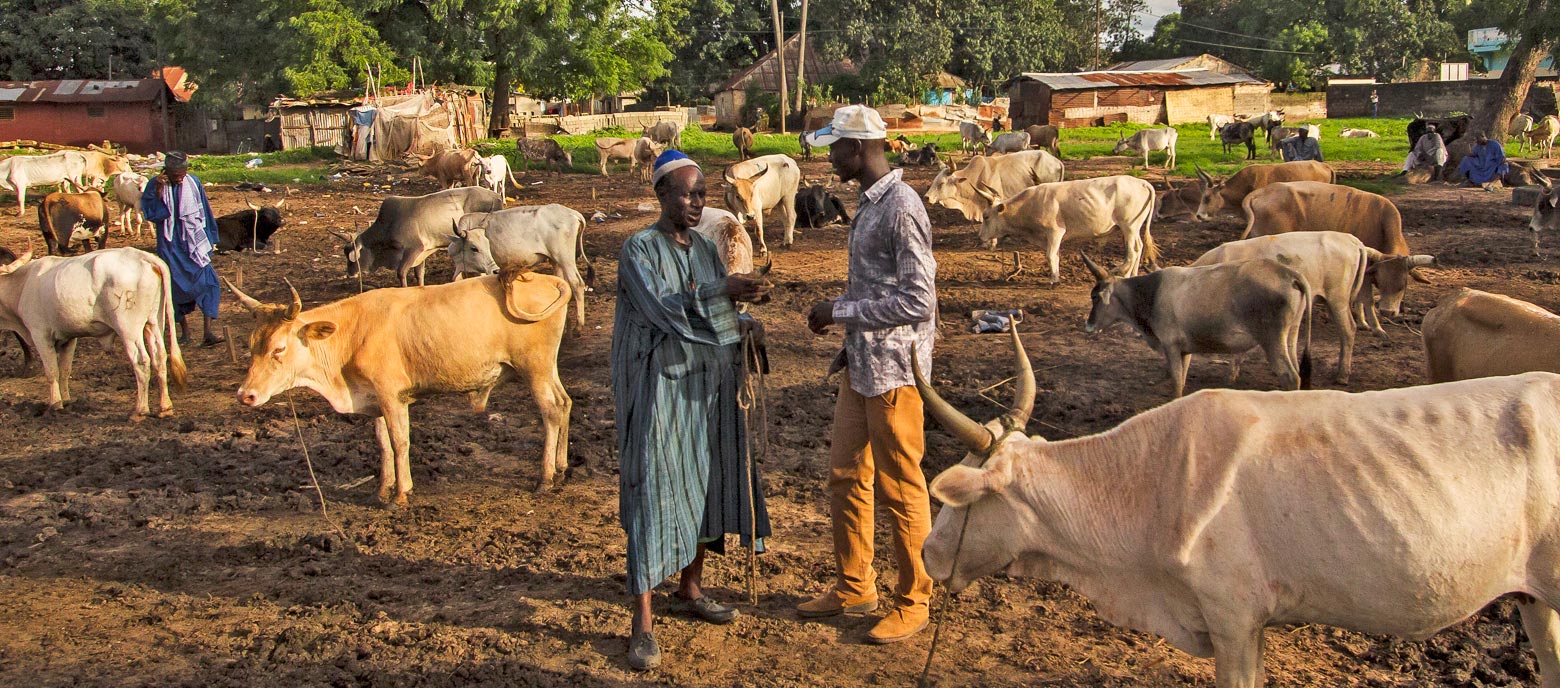Senegal
Cow power
Their handshake is long and cordial. Around them, some hundred cattle rest in the evening sun. The herd’s owner Samba Deme and the young researcher Omar Kata Faye have been meeting regularly for several months and are now business partners. It’s time to bring the cows in for the night after a day’s grazing on the outskirts of the city of Ziguinchor in Senegal’s rural south, and Samba Deme will be keeping a watchful eye on them. One of his tasks is to collect their manure – and that’s what interests Omar Kata Faye, for it is the main input for his research project.
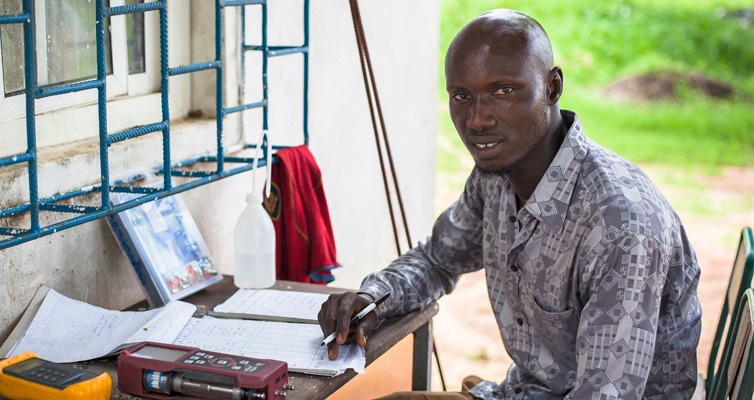
The 31-year-old scientist from Assane Seck University in Ziguinchor has developed a biogas plant that produces ‘cow power’ – electricity from manure. Plants like this have the potential to supply electricity to remote villages in Casamance. Samba Deme is being paid to provide some of the raw material.
Helping young people into employment
Renewable energy is playing an increasingly important role in Senegal, home to around 15 million people. In May 2017, President Macky Sall announced that around a fifth of the country’s electricity is now solar-generated. Solar panels can be seen almost everywhere, with more and more companies now providing installation services. But solar power is not the only option in the expansion of the country’s energy sector. The renewables sector is booming, and several universities have developed courses to satisfy the demand for technical experts. One of them is the University Programme on Renewable Energies and Energy Efficiency in Senegal (PESEREE) which, with input from the Deutsche Gesellschaft für Internationale Zusammenarbeit (GIZ) GmbH on behalf of the Federal Ministry for Economic Cooperation and Development (BMZ), has been working to improve students’ employability and help them into the workplace and business since 2015. The programme involves four universities in Senegal – Thiès, Bambey, Saint Louis and Ziguinchor – with Cologne University of Applied Science (TH Köln) as the German partner, and is supported by the German Academic Exchange Service (DAAD). The lead executing agency is Senegal’s Ministry of Higher Education and Research. So far, around 100 students in Senegal have signed up for the programme.
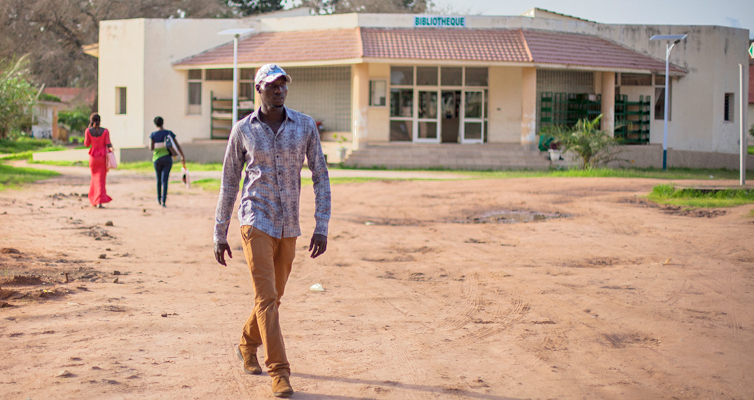
The four universities’ degree course in renewable energy, known as Master Interuniversitaire en Energies Renouvelables (MIER), enables students and lecturers to switch between institutions more easily and share access to their specific infrastructures and strengths. The programme also runs summer schools for German and Senegalese students, who benefit from this opportunity to pool their knowledge. Helping the universities to upgrade the joint curriculum is another priority. ‘This inter-university approach is unique in Senegal,’ says GIZ programme manager Cornelia Seck. It enables universities to select their own specialisms yet together cover the entire renewable energy spectrum.
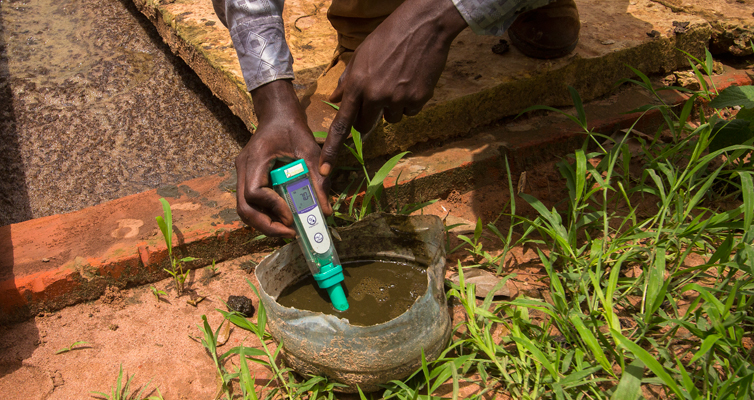
Omar Kata Faye would often have appreciated better networking opportunities during his studies. He completed his Master’s degree in early 2017. Did he do well? He smiles at the question: he’s happy with his results, he says. He spent many hours on his research and experiments to bring his project to completion. Right now, he is perched at a small wooden table between the laboratory and the biogas plant. His work space is located at the edge of the campus at Ziguinchor University, which was founded in 2007. Casamance region in the south-west is separated from the rest of Senegal by neighbouring Gambia. Its isolated position sparked an independence movement in the early 1980s. The situation has calmed down since then, but the years of conflict have slowed the region’s development. ‘Sometimes, I found it difficult to access the equipment I needed. For example, I couldn’t find a pH meter anywhere around here,’ he says. He finally tracked one down in the capital Dakar, 270 kilometres away.
A successful experiment with cashew apples
The young man fetches his notebook. He recorded his breakthrough, he says, on 13 June 2017 – the day when his experiment worked for the first time and his blend of cow dung (85%) and cashew apple pulp (15%) produced electricity. Cashew apples – the fruit of the acajou tree – are commonly found across West Africa. Broken open, they yield the cashew nuts which are so popular in Germany. Some of the fruit is processed into juice, but much of it is simply left to rot. Omar Kata Faye is now making use of both raw materials, having trialled various blends of fruit and cow dung until the biogas plant finally worked. ‘I was so thrilled when it was successful,’ he says. He’s still smiling at the memory several months on.
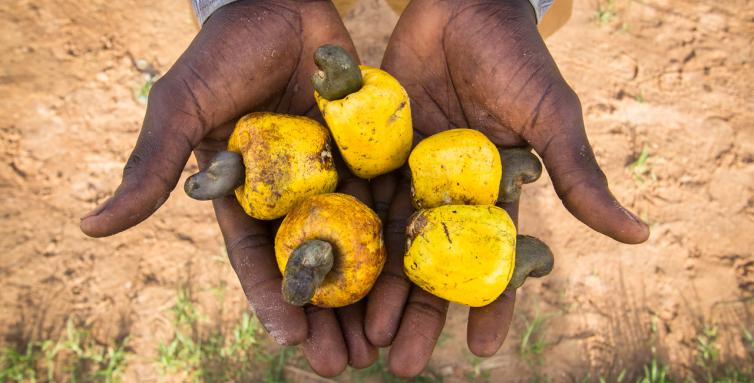
![]()
![]()
![]()
![]() Picture gallery: The biomass also contains the flesh of cashew fruits.
Picture gallery: The biomass also contains the flesh of cashew fruits.
Thanks to his experiments, Omar Kata Faye has gained a wealth of practical experience. He points out the ditch he dug for his biogas plant – and the small-scale precursor model. Before that, he spent time researching on the internet and found various sets of instructions, which he then replicated. One of the main criticisms voiced by many companies in Senegal is that graduates lack practical skills. ‘It’s true that some students have no experience outside the university,’ Omar concedes. But some of the fault lies elsewhere: ‘Not every company is willing to offer internships to young people.’
Improving the rural energy supply
The four partner universities’ new programme is meant to change all that. ‘We give our students the opportunity to work with the professionals – the practitioners. So our graduates are now gaining more than just a university education,’ Professor Lat Grand Ndiaye explains. As Head of Physics, with a particular interest in biomass, he is responsible for Ziguinchor’s input into the new Master’s programme and also supervised Omar Kata Faye’s research.
Putting research findings to practical use in order to improve the rural energy supply is a priority for both of them. Omar Kata Faye was raised by his father in the capital Dakar but always spent his holidays with his mother in Casamance, a region of Senegal whose development is trailing behind the rest of the country. Nationally, around half the population lives in poverty – but in Casamance, the figure is even higher. ‘Families here can barely scrape together 3800 CFA (EUR 5.79) to buy canisters of gas for cooking,’ says Professor Lat Grand Ndiaye.
Omar Kata Faye’s research addresses the issue. ‘We think people need to make better use of the resources they have available,’ he explains. ‘Whenever I came here, I noticed that there are cattle everywhere and, of course, they produce manure. And I thought to myself, we could make something of that.’ He has come up with a solution – a 10 cubic metre biogas plant.
Power for cooking and homework
The project is still in its infancy, but Omar Kata Faye has already worked out how biogas plants in rural regions can pay for themselves. The initial investment amounts to the equivalent of around EUR 1,100, depending on the materials used. For a household with eight or nine cattle, the investment pays off. Biogas is trending – evident also from a nation-wide programme in Senegal that provides funding for domestic systems.
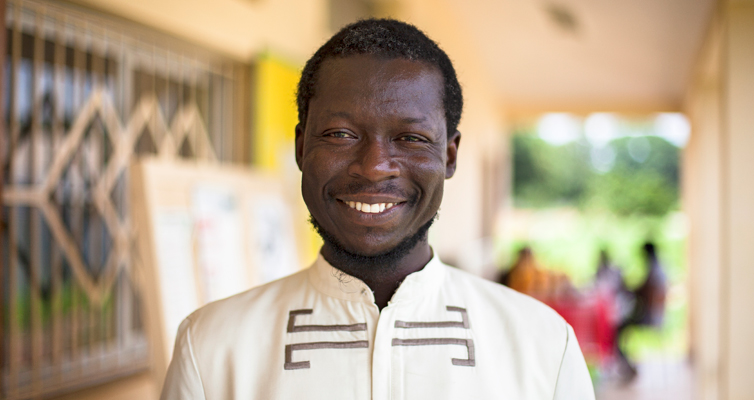
Omar’s small-scale biogas plant produces enough electricity to meet an entire family’s daily cooking needs and provide five hours of electric light in the evening. For Omar Kata Faye, that’s one of the most important aspects: ‘It’s vital to enable the children to do their homework and keep up with their lessons at school.’ He himself has plans to continue his studies as well: if all goes well, he will be starting his PhD next year. What’s his topic? Renewable energy.
Contact: Cornelia Seck > cornelia.seck@giz.de
January 2018
